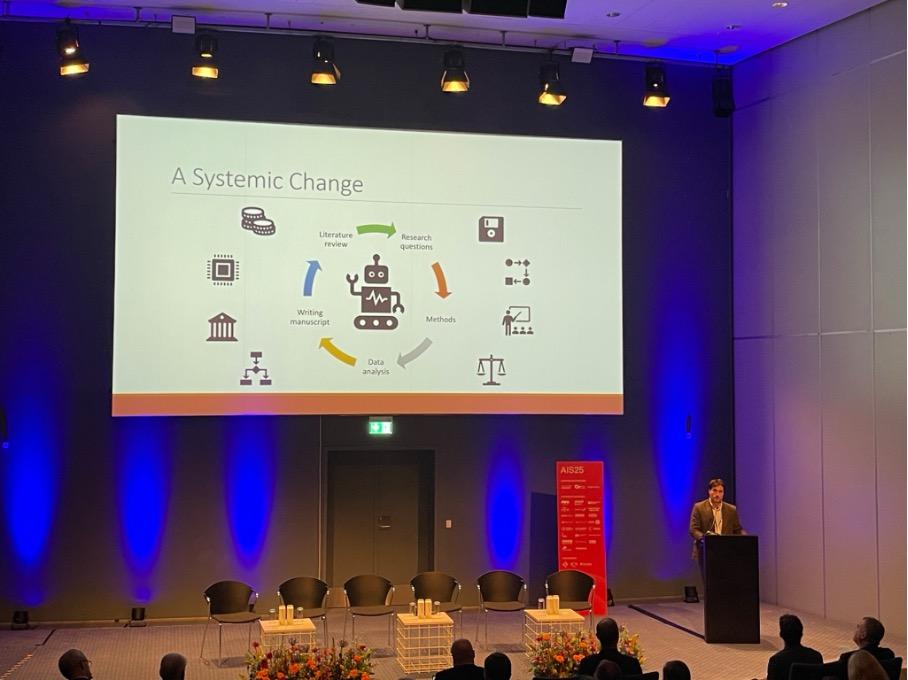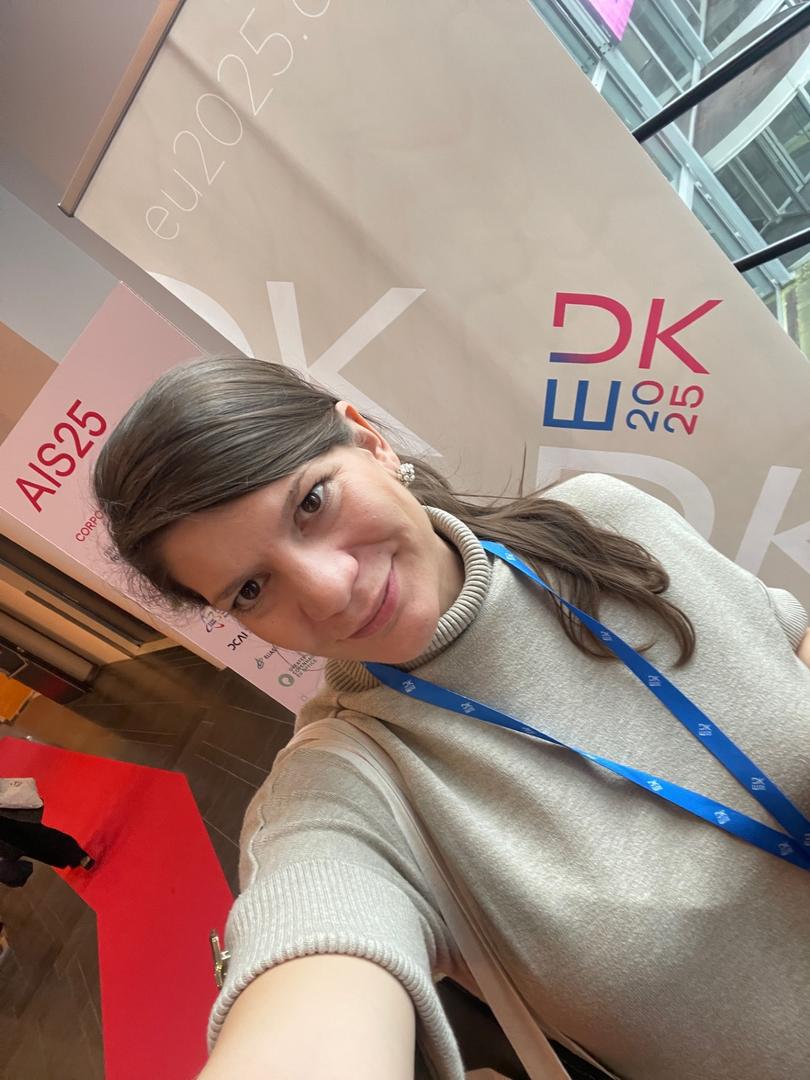
Our Institute’s researcher, Viktória Lilla Pató, took part in the “AI in Science Summit 2025” conference held in Copenhagen on 3–4 November 2025, organised by the Danish EU Presidency and the European Commission. The two-day event focused on how Europe can harness the power of artificial intelligence for scientific research, opening a new chapter in the continent’s innovation and competitiveness policies.

Throughout the programme, discussions were held with academic, industry and policy stakeholders, and a dedicated workshop addressed the forthcoming 2026 call topics aimed at integrating AI and advancing AI-related technologies. A key message was that the EU4Health 2026 annual work programme – which will include calls building on health data and AI solutions – is planned to be adopted by the Commission already in December, representing a major step forward after the significant delays affecting the adoption of the 2025 work programme. This will open up new opportunities for projects in the fields of health data infrastructure, digital health services and AI-driven diagnostics, prevention and care management.
At the conference’s funding-focused workshop, representatives of the European Commission also presented the planned 2026 AI-related calls under the Horizon Europe “Digital, Industry and Space” (Cluster 4) work programme. According to current plans, the calls will open in spring 2026, with the first deadlines expected in autumn 2026. Priority topics will include the development of trustworthy and energy-efficient AI, the use of collaborative AI in advanced manufacturing and robotics, as well as AI-enabled dataspaces and the interoperability of sovereign cloud solutions. In total, these thematic areas are expected to receive around EUR 120 million, primarily through multi-country consortia projects.
From a research management perspective, it is particularly relevant that the planned 2026–2027 calls under the Marie Skłodowska-Curie Actions (MSCA) programme were also highlighted, as they jointly support researcher mobility, international cooperation andbusiness participation. Under the Doctoral Networks calls, networks of at least three European organisations can be established, targeting early-stage researchers who are eligible for doctoral training but have not yet obtained their PhD. These projects, groupingaround 10–15 researchers for a maximum duration of 48 months (or 60 months in the case of joint/double degree programmes), place strong emphasis on the involvement of non-academic partners, such as industry or civil society organisations.
Postdoctoral Fellowships offer 24–36 months of funded research for PhD holders with a maximum of eight years of postdoctoral experience, with a strong focus on excellence. Staff Exchanges provide a flexible framework for staff mobility between institutionsaround a joint scientific project – including research managers, provided their role is adequately reflected in the project. Through the Co-fund calls, institutions can upgrade their own doctoral or postdoctoral programmes to MSCA standard, with partial EU co-financing. A common feature of all these schemes is that they are open to the scientific and innovation-oriented applications of artificial intelligence, and the related positions will also be advertised on the EURAXESS portal.

The Copenhagen conference provided not only concrete funding-related information, but also a broader strategic framework for Europe’s AI policy. The most important announcement of the event was the launch of the RAISE – Resource for AI Science in Europe– initiative, which will function as a virtual European institute networking the key resources needed for AI in science: data, computing capacity, leading researchers and funding instruments. The programme will give European researchers access to so-called AI Gigafactories, developed with substantial EU funding, and earmark dedicated envelopes for excellence initiatives and doctoral networks. RAISE is designed to support AI fundamental research, AI applications in science and strategically important investments, mainly through Horizon Europe and the Digital Europe Programme (DEP). For 2026–2027, the Commission plans to allocate around EUR 100 million to the development of next-generation AI systems. The message of the plenary sessions was clear: AI is not a distant promise of the future, but the present of research, and Europe must now design the institutional and funding solutions that ensure AI remains human-centred, transparent and safe.
A more detailed, personal account of the conference has also been published in Hungarian on the Ludovika Blog of the University of Public Service. The article, entitled “The More We Understand, the Less We Fear – Europe’s New Direction in the Scientific AI Revolution”, explores how the RAISE initiative fits into the European strategy built around the “fifth freedom” – the free circulation of knowledge and research; what scientific, ethical and regulatory dilemmas arise from the fact that generative AI systems often “beautify” reality to maximise user satisfaction; and why it is crucial for Europe to invest in “honest”, reproducible and safe frontier AI systems that can become reliable partners for science.
Pató Viktória Lilla
2025.11.18.